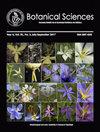理解当前孢粉学的观点:用科学与实践话语
IF 0.7
4区 生物学
Q3 PLANT SCIENCES
引用次数: 0
摘要
背景:孢粉学研究对与可持续性密切相关的主题做出了贡献。然而,目前还很少有科学综述讨论当前孢粉学的实际应用及其作为综合景观管理研究的理论框架的前景。本文综述了孢粉学在自然生态系统和新型生态系统中对农业模式多样性的贡献。问题:孢粉学成熟期的当前观点和关注点是什么?花粉分析在景观管理和生物多样性保护中的应用途径是什么?研究种类:花粉分析和孢粉形态。研究地点和日期:当前孢粉学的全球文献。方法:采用关键词、理论框架、原创文章等方法检索全球科学文献。结果:基于全球科学文献,我们确定了孢粉学的可持续性研究视角:1)生态-进化和2)跨学科研究。此外,我们还讨论了通过当前孢粉学在不同耕作景观(基于生物多样性的耕作系统和基于化学投入的耕作系统)中认识到的生态系统服务之间的协同效应和权衡。虽然花粉形态和描述孢粉学可以为作物改良、生物入侵和森林砍伐对本地物种的影响提供依据,但更多的分析方法如土地利用指标对于可持续管理是必要的。此外,由于目前孢粉学缺乏实际论述,我们还包括了一些生物文化方面的保护。结论:当前孢粉学的创新影响是综合景观管理的有力途径。本文章由计算机程序翻译,如有差异,请以英文原文为准。
Understanding perspectives of current palynology: using science with practical discourse
Background: Palynological studies have contributed with topics closely linked to sustainability. However, there are still few scientific reviews that have discussed the relevance of practical applications in current palynology and its perspectives as a theoretical framework for the study of integrated landscape management. This review shows palynological contributions within agricultural model diversities in both natural and novel ecosystems. Questions: What are the current perspectives and concerns of the mature phase in palynology? What are the approaches of pollen analysis on landscape management and biodiversity conservation?Studied species: Pollen analysis and palynomorphs.Study site and dates: Global literature from current palynology.Methods: Global scientific literature using keywords, theoretical frameworks, and original articles.Results: We identified palynological perspectives for the study of sustainability based on global scientific literature: 1) ecological-evolutionary and 2) interdisciplinary research. In addition, we discussed some synergies and trade-offs between ecosystem services that were recognized through current palynology in different farming landscapes: biodiversity-based farming systems and chemical input-based farming systems. While pollen morphology and descriptive palynology can provide the basis for crop improvement, biological invasions, and the effect of deforestation on native species, more analytical approaches such as land-use indicators are necessary for sustainable management. In addition, we have included some biocultural aspects to conservation, due to a lack of practical discourse in current palynology. Conclusions: Innovative influences from current palynology are powerful approaches to integrated landscape management.
求助全文
通过发布文献求助,成功后即可免费获取论文全文。
去求助
来源期刊

Botanical Sciences
Agricultural and Biological Sciences-Plant Science
CiteScore
1.90
自引率
21.40%
发文量
71
审稿时长
16 weeks
期刊介绍:
Botanical Sciences welcomes contributions that present original, previously unpublished results in Botany, including disciplines such as ecology and evolution, structure and function, systematics and taxonomy, in addition to other areas related to the study of plants. Research reviews are also accepted if they summarize recent advances in a subject, discipline, area, or developmental trend of botany; these should include an analytical, critical, and interpretative approach to a specific topic. Acceptance for reviews will be evaluated first by the Review Editor. Opinion Notes and Book Reviews are also published as long as a relevant contribution in the study of Botany is explained and supported.
 求助内容:
求助内容: 应助结果提醒方式:
应助结果提醒方式:


